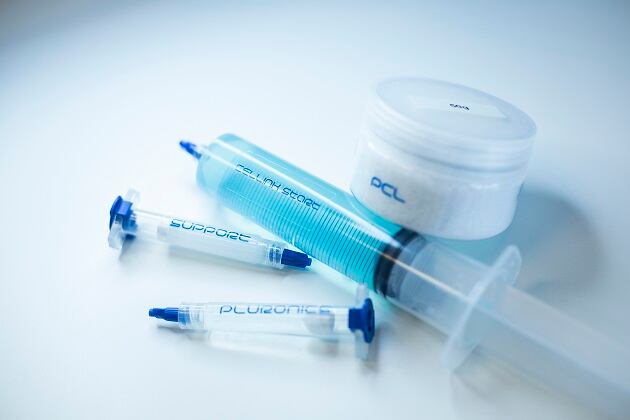Cellink got its start in 2016 and is headquartered in Boston, Massachusetts, (in the US) where a lot of biotech businesses are located. The company makes and commercializes bioprinting technologies for use in academic research and industry. Bioprinting is essentially 3-dimentional printing technology that incorporates live cells and is used to create tissue and other components.
Their main focus is on medicine and pharma; but Cellink technology is also used to create functional tissue models that are used in skin care product testing. “Skin care products [are] in need of enhanced testing procedures that, in an ethical agenda, can increase the transability from in vitro testing to in vivo usage of products. With tissue engineering and 3D bioprinting, more representative in vitro models can be constructed, providing the possibility to limit the usage of animal models while increasing the physical relevance of the testing models,” explains the company’s page on skin tissue tech.
Buying more tech
Cellink is acquiring Cytena primarily for its single-cell printing technology. The specialized tech will “[enable] researchers to isolate cells for cell line development and build microtissues faster and more reproducibly,” explains a press item circulated this month by Cytena. The new tech will augment and advance Cellink’s 3D cell culturing solutions, allowing the company to serve more clients.
“We are excited to welcome Cytena to the Cellink family of life-science companies with this strategic acquisition,” says CEO Erik Gatenholm in the item. “We are furthering Cellink’s global commercial strategy by focusing on the pharmaceutical industry and providing the most innovative solutions to researchers around the world. With Cytena’s revolutionary technology platforms we will streamline workflows for our present and future customers, and enhance our presence in the pharmaceutical industry, a strategy that is well aligned with our vision. Together with Dispendix, we will be well-positioned to offer comprehensive solutions for both academic and pharmaceutical customers worldwide.” (Cellink acquired Dispendix, a company specializing in nano- and micro-liter liquid handling technology, in November of last year.)
Escalating beauty tech
Beauty tech has grown to be an industry within an industry in recent years. And it seems that now, no sector of the cosmetics, personal care, or fragrance industry is untouched by digital technology. The Cellink-Cytena deal highlights tech’s importance in ingredient and product testing; but cutting-edge digital technology can be seen in labeling, ecommerce and conventional retail, product customization, fragrance blending, and much more.
For instance, Scotland-based Cutitronics is poised to launch its first skin care tech tool next year: the CutiTron device promises to assess a consumer’s skin condition and needs, and then dispense the right amount and combination of appropriate products. Of course the tool is collecting real-time data along the way, and that data will be used to help brands and ingredient makers develop better products. (Learn more here in Cosmetics Design’s video interview with Cutitronics’ commercial director Wilma McDaniel, filmed at this year’s in-cosmetics global event in Paris, France.)
Fragrance makers are taking full advantage of big data and digital tech too. In collaboration with IBM, Symrise has built and AI platform called Philyra that helps perfumers find new and nuanced fragrance blends that may appeal to a given consumer group faster. Read more here in This Month In Fragrance: July 2019.
And multinational beauty makers like L’Oréal are, not surprisingly, all in on tech as well. That company’s Canadian business recently welcomed 5 technology startups into its accelerator program. Notably the startups selected have no clear connection to beauty, only the potential to be leveraged as beauty tech with further development and a little ingenuity.
---

Deanna Utroske, CosmeticsDesign.com Editor, covers beauty business news in the Americas region and publishes the weekly Indie Beauty Profile column, showcasing the inspiring work of entrepreneurs and innovative brands.



